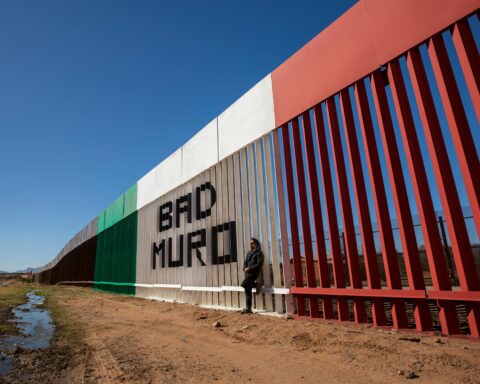Though its diaspora community in British Columbia might not be the biggest or most visible, Mexico is Canada’s third largest trade partner and the ninth largest contributor of international students.
In fact, it sends the most international students to Canada of any other Latin American country.
It was in this context that Juan Navarro decided to organize the first Mexi-Can Forum. The event, which took place earlier this month at The University of British Columbia’s (UBC) Robson Square, brought together leaders in education, innovation and entrepreneurship from both the public and private sectors.
“One of the main purposes of this forum was to make it clear that Mexicans in B.C. are contributing to Canadian society,” explains Navarro.
“I think this is a great time for Mexicans to prove we can be there for each other.”
Navarro is the president of the B.C. chapter of the Society of Mexican Talent — a global network that operates in 45 different locations around the world with each chapter focusing on different subjects.
According to Navarro, the B.C. group, which was only created a year ago, is heavily focused on education, innovation, technology and entrepreneurship – the same subjects that were broadly discussed during the forum.
“I think this is a great time for Mexicans to prove we can be there for each other,” says Navarro. “Not just because we share a culture and many of us are coming here and starting from zero. But because we can achieve great things.”
Mexico: A strategic ally
The forum opened with keynote speeches by Claudia Franco Hijuelos, Consul General of Mexico in Vancouver, Andrew Wilkinson, the Minister of Advanced Education in B.C. and Andrea Reimer, city councillor and Deputy Mayor of Vancouver.
During his keynote speech, Wilkinson noted that Mexico is a strategic ally in international education and that the province is interested in receiving more Mexican students. There are currently more than 400 signed agreements among universities and higher-education institutions in both countries.
[T]he number of Mexican students in Canada grew by 58 per cent between 2004 and 2013.
According to data provided during the conference by Mitacs, a non-for-profit research organization governed by Canada’s research universities, Canada ranks as the world’s seventh most popular destination for international students.
The number of international students grew by 84 per cent between 2003 and 2013, and Canada’s International Education Strategy aims to increase international students to 450,000 by 2022.
Specifically, the number of Mexican students in Canada grew by 58 per cent between 2004 and 2013.
A brand new Canada-Mexico International Education Agreement, which was announced in June, aims to invest $10 million to attract Mexican post-secondary students and post-doctoral fellows to Canadian universities and research institutions, as well as give Canadian students the opportunity to diversify their research experience in Mexico.
Growing possibilities in tech
While this is an exciting time for Mexican students, one of the most noteworthy aspects of the forum was the evident optimism surrounding the fast growing technology sector in Vancouver and the employment possibilities this sector is creating for current and future talent – foreign or domestic.
In his presentation, Robert Helsley, Dean of the Sauder School of Business at UBC, made a point to highlight the importance of partnerships between growing industries and educational institutions. In the case of Vancouver, the fastest growing sector is technology.
“The most important thing is talent and the tech firms will come here if there is talent.”
According to Helsley, the best way to know which industry is concentrated in any given city is through a measure called the location quotient, which is measured by taking the percentage of employment in a local industry and dividing it by the percentage of employment in that industry on a national level.
“The industries concentrated in a city lets you know what’s basic for the local economy,” explains Helsley. “In Vancouver, it’s data processing, motion picture and video industries, publishing industries (which includes software), water transportation, rail transportation, wholesaling and warehouses.”
Helsley further explains that these industries are related to the city’s port and technology sector. Since the port sector is already extremely successful, the more likely candidate for growth in Vancouver is technology.
The numbers support this. According to data provided by Helsley, in five years only 69,000 jobs were created in Vancouver; however, 12,400 of those jobs (20 per cent) were in the scientific and technical services industry.
“IT is relatively concentrated and it’s growing quickly,” says Helsley. “The most important thing is talent and the tech firms will come here if there is talent. And that means that education is particularly important, especially in engineering and business.”
This also means that the creation of a space like the Mexi-Can forum, which focuses on creating international partnerships in the technology, innovation and education sectors, is a step in the right direction.
For Navarro, this year’s forum is just the beginning. He’s already planning next year’s.
“We would like more people to come next year. There’s lots of space to grow, maybe branching to other provinces or making it a national forum.”





